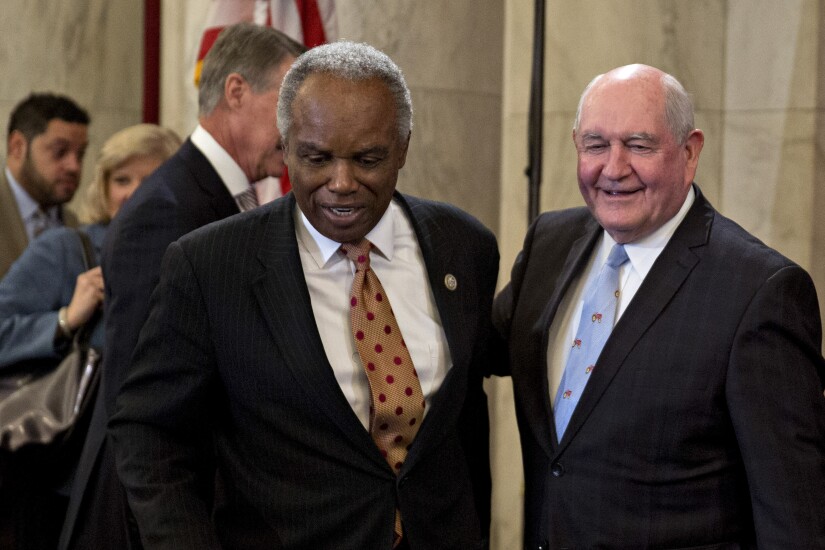UPDATE: This story has been updated to reflect vote tallies.
WASHINGTON — The House Financial Services Committee passed 13 bills on Wednesday, including one that would stop Fannie Mae and Freddie Mac from being released by the government and another hailed as helping the underbanked in rural areas.
Among the most significant bills approved was one by Rep. French Hill, R-Ark., that would prevent the Treasury Department from selling its preferred stock and warrants in the government-sponsored enterprises until 2019. The bill, passed 33-27, would not prevent Congress and the Trump administration from moving forward with housing finance reform and signing legislation restructuring Fannie and Freddie.
It would, however, stop the Trump administration from recapitalizing and releasing Fannie and Freddie from conservatorship, though there is no sign that it is planning to do so. A similar bill was included as part of a 2016 omnibus bill but is set to expire next year.
Hill’s bill would also prevent the Federal Housing Finance Agency from allowing Fannie and Freddie to pay any money to the Housing Trust Fund, which is managed by the Department of Housing and Urban Development, in quarters where the GSEs are not profitable.
“I believe that if the secondary mortgage market entities are not profitable or do not make payments to the Treasury, then they should forestall payments to the Housing Trust Fund,” Hill said in an interview last week.
Fannie and Freddie contribute a small fee to the housing trust fund, which provides grants for affordable rental housing to states. In 2017, Fannie and Freddie contributed $220 million to the fund.
The panel had been scheduled to vote on a 14th bill, one that would allow some money market funds to use a Net Asset Value to calculate price per share, but the panel dropped those plans.
Following is a guide to other bills financial institutions are watching:










